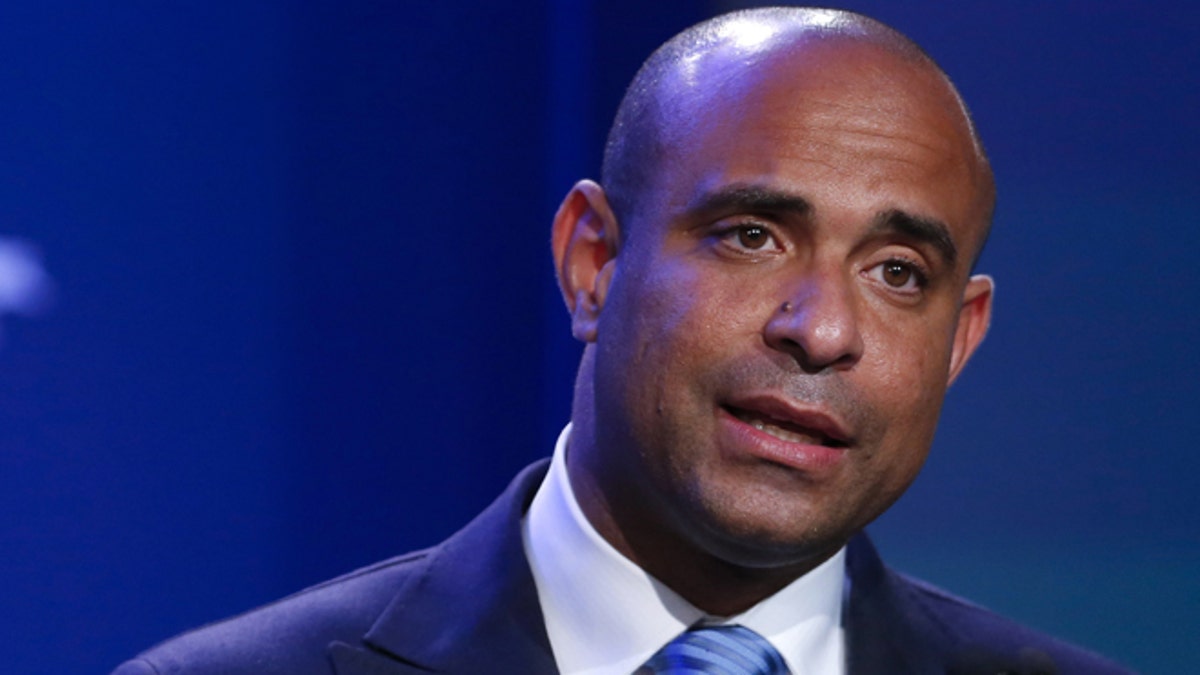
Sep. 24, 2012: Haitian Prime Minister Laurent Lamothe speaks during a commitment workshop titled "Haiti: Lessons for the Future" on the second day of the Clinton Global Initiative 2012 (CGI) in New York. (Reuters)
DAVOS, Switzerland – Haiti's young prime minister made a whirlwind visit to the World Economic Forum in Davos to try to drum up support for his country, where 52 percent of the population lives on less than one dollar a day, and where average per capita income, he says, is $750 a year.
"I think the perception of bad governance in Haiti has kept people away. That in itself creates an opportunity, because we are one of the few destinations with unspoiled beaches, with white sand, coconuts everywhere and year-round sun."
Laurent Lamothe got his degree in the United States, at Barry University in Miami, started his own his own telecom firm, then ultimately decided to go back to his native country to help make a difference when his friend, music sensation Michel Martelly, became president not long after that country's devastating earthquake. Lamothe says the fact that neither of them had political experience before taking office is not necessarily a bad thing -- in fact, he says, political experience in Haiti was never a factor in good management. "We share a common vision for the country. We need to contribute what we have learned in the private, business sector, to give back to the country."
Much of the aid offered up after 2010's earthquake, which caused $12 billion in damage, never materialized. But Lamothe says Haiti does not want to be "an NGO state" forever, and therefore was whipping around the CEO-central that is Davos, trying to get out the word that Haiti wants investment, in its gold-mining industry -- which the prime minister says is relatively untapped -- in agriculture, textiles and tourism.
He says Haitians are anxious to get to work. "In a structured environment, Haitians do very well. We are good at getting an opportunity and making the most of it."
He goes on, "The best way to invest is to come and open a factory in Haiti, or invest in the tourism sector, open a hotel.This is what we are looking for. This is a vibrant market of 10 million people."
Lamothe, 40, claims most people are back in homes after the earthquake, but there are still hundreds of thousands who need new roofs over their heads. He says the task has been daunting.
They had the equivalent of 4,000 Olympic pools filled with rubble.
But, he concludes, one good thing came out of the disaster: "The earthquake showed us only with solidarity, Haitian to Haitian, international community with Haiti ... it showed our sense of resilience, pride, to be able to go through this tragedy and still be there, fighting for a better life."
